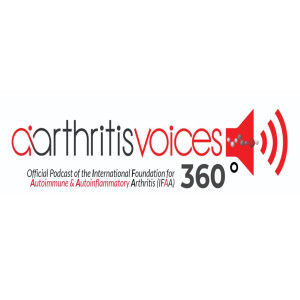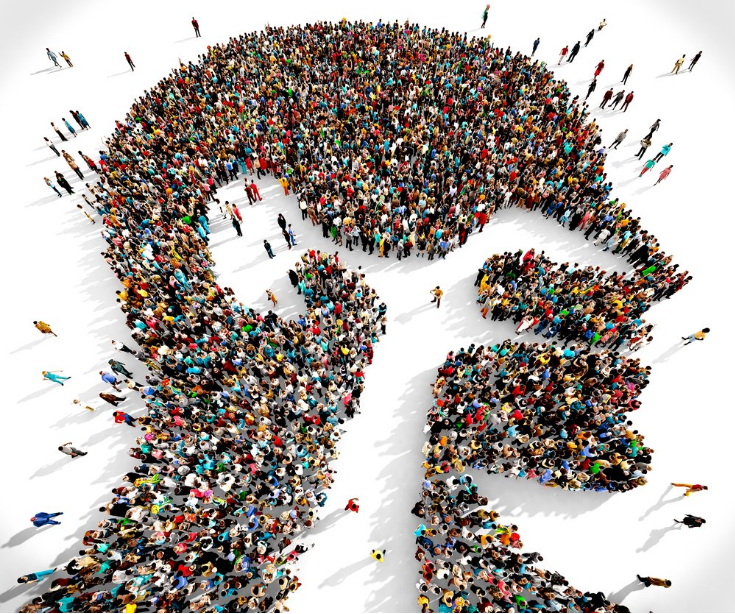Episodes

Saturday Feb 22, 2020
Episode 15 Internalized Ableism - Finding Your Freedom to Participate in Life
Saturday Feb 22, 2020
Saturday Feb 22, 2020
This episode join co-hosts Charis Hill and Tiffany Westrich-Robertson as they discuss the important topic of overcoming internalized ableism, both individually and as a society. They discuss the reasons people living with AiArthritis diseases may find it difficult to transition to identifying as a disabled person. Charis also shares insight on medical vs social models of disability and some suggestions for overcoming our invisible prejudices against disabled people. They also touch on the United States federal disability benefits application process. This episode is important for everyone!
Patient Voices and All Other Stakeholders - Join our AiArthritis Voices Program and Connect to Opportunities to Have Your Voice Counted!
If you are a patient, a parent of a juvenile patient, or any other stakeholder (doctor, nurse, researcher, industry representative, or other health services person) - are you ready to join the conversation? It's your turn to pull up a seat. Join our new AiArthritis Voices program, where people living with AiArthritis diseases and other stakeholders who we need 'at the table' to solve problems that impact education, advocacy, and research sign up to have a voice in our initiatives. By signing up, you’ll get notified of opportunities to be more involved with this show - including submitting post-episode comments and gaining insider information on future show topics. Patients and all other stakeholders are encouraged to join so we can match you with opportunities to pull up a seat and TOGETHER - as equals - solve the problems of today and tomorrow.
AiArthritis Voices 360 is produced by the International Foundation for Autoimmune and Autoinflammatory Arthritis. Visit us on the web at www.aiarthritis.org/talkshow. Find us on Twitter, Instagram, TikTok, or Facebook (@ifAiArthritis) or email us (podcast@aiarthritis.org).
Be sure to check out our top-rated show on Feedspot!
Show Notes: Episode 15 ”Invisible Ableism”
00:52 - Tiffany welcome listeners and co-host, Charis Hill
02:34 - Charis was diagnosed with Axial Spondyloarthritis in 2013
02:45 - They applied for Social Security Disability Insurance less than 3 years later
03:18 - Living with Ax-Spa has affected them mentally and physically
04:16 - Charis considers their identity as a disabled person to be very empowering
05:43 - The definition of disability is any condition that restricts one or more activities of daily living, which applies to anyone living with chronic disease
06:04 - Based on this definition, everyone living with an AiArthritis disease is disabled from symptom onset
06:40 - Most people have a moment where they decide to use assistive devices, and that is often accompanied by a change in identity
06:59 - Ableism is discrimination in favor of the able-bodied
07:40 - Ableism normalizes able-bodied and neuro-typical individuals as the privileged class
08:32 - The medical model of disability mentioned before is what is used to define disability from a legal standpoint
09:05 - The medical model of disability blames the individual for being impaired and views them as incomplete or in need of fixing
09:14 - The social model of disability places the responsibility on society to make the world more accessible to all people, regardless of impairment
09:32 - “My disease impairs me, but society is what disables me”
09:41 - Disease does not prevent someone from entering a building. Society’s preference for stairs prevents them from entering the building or being able to participate.
10:24 - Internalized ableism is a fear of becoming or being disabled
11:34 - Children are socialized to blame their body for not doing what society says it should do
12:10 - Using assistive devices allows disabled people more freedom to participate in life
14:18 - Tiffany has avoided using devices that could improve her quality of life out of fear of being judged by others
17:41 - Part of the hesitation to use devices may stem from fear of letting go of their former identity
19:30 - Letting go of ability and losing privilege is a scary transition because you are completely shifting your outward appearance to the world
20:30 - Disabled people make up one of the largest minorities in the world, but also one of the most oppressed identities in the world
21:36 - Charis’ transition in identity began with using canes and wheelchairs in airports
22:13 - Why shouldn’t canes be accessories?
24:18 - Charis is sometimes politically motivated to park in accessible spots when they are not using their cane to normalize invisible disability
24:47 - If people confront Charis for parking in an accessible spot, they ask the person to please explain what a disabled person looks like
25:17 - Shortly after borrowing a wheelchair, Charis realized that they wanted their own wheelchair so they could be independent and participate in activities
27:46 - Never assume someone needs help or put your hands on someone’s wheelchair without asking
28:20 - In the same way you would obtain consent before touching someone’s body, you should always have consent before touching someone’s wheelchair because it is an extension of their body
29:18 - Sometimes non-disabled people have a tendency to treat disabled people as though they are not fully human
32:25 - There is so much value in our culture associated with working, which feeds ableism
33:50 - When your disease is unpredictable, it can be challenging to identify as disabled because you don’t feel disabled every day even though you have that disease every day
37:31 - Many people in the disability community are shifting to identity-first language (disabled person) vs person-first language (person with a disability), but you should ask about preference because there is not universal agreement
39:44 - On average, it takes 3-5 years in the United States for disabled people to receive federal disability benefits
41:40- Disability in the US does not pay a living wage, so there is a lot of fear associated with relying on that to survive
42:01 - The US discourages people from applying for disability benefits by making the application process very difficult, long, and expensive and by denying half of the applicants
43:42 - Charis recommends that anyone who applies for federal disability benefits in the US should use a disability attorney from the start
44:14 - Tiffany asks any international listeners to submit tips for applying for disability benefits in other countries
45:00 - Universal accessibility - which can apply to any space - is a model that seeks to maximize usability for as many people as possible
46:39 - Overcoming internalized shame - both as a society and an individual - is an important step to overcoming ableism
46:57 - At least 20% of the US population lives with a disability
49:00 - Buttons that make doors accessible to disabled people are not legally required to work in all locations in the US
51:00 - Eyeglasses are an assistive device that are now widely accepted by society, which demonstrates that shifts in acceptance can happen
52:20 - Tiffany thanks Charis for nominating the topic and coming on the show to lead the discussion
52:41 - Tiffany invites listeners to join the discussion on social media @ifaiarthritis on all platforms
53:00 - Listeners are invited to visit aiarthritis.org/podcast to submit topic ideas or get involved with the show


No comments yet. Be the first to say something!